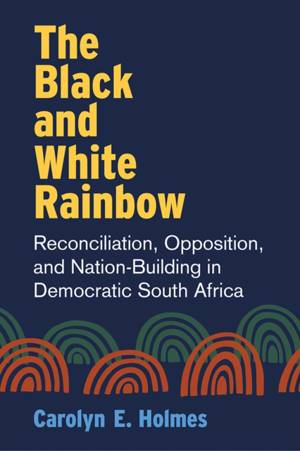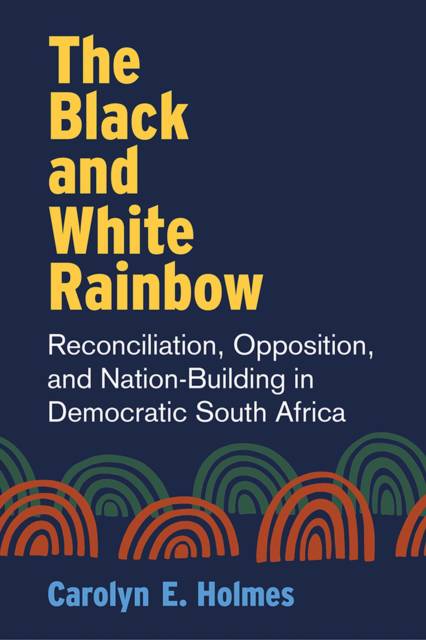
- Retrait gratuit dans votre magasin Club
- 7.000.000 titres dans notre catalogue
- Payer en toute sécurité
- Toujours un magasin près de chez vous
- Retrait gratuit dans votre magasin Club
- 7.000.000 titres dans notre catalogue
- Payer en toute sécurité
- Toujours un magasin près de chez vous
The Black and White Rainbow
Reconciliation, Opposition, and Nation-Building in Democratic South Africa
Carolyn Holmes
85,45 €
+ 170 points
Format
Description
Nation-building imperatives compel citizens to focus on what makes them similar and what binds them together, forgetting what makes them different. Democratic institution building, on the other hand, requires fostering opposition through conducting multiparty elections and encouraging debate. Leaders of democratic factions, like parties or interest groups, can consolidate their power by emphasizing difference. But when held in tension, these two impulses--toward remembering difference and forgetting it, between focusing on unity and encouraging division--are mutually constitutive of sustainable democracy. Based on ethnographic and interview-based fieldwork conducted in 2012-13, The Black and White Rainbow: Reconciliation, Opposition, and Nation-Building in Democratic South Africa explores various themes of nation- and democracy-building, including the emotional and banal content of symbols of the post-apartheid state, the ways that gender and race condition nascent nationalism, the public performance of nationalism and other group-based identities, integration and sharing of space, language diversity, and the role of democratic functioning including party politics and modes of opposition. Each of these thematic chapters aims to explicate a feature of the multifaceted nature of identity-building, and link the South African case to broader literatures on both nationalism and democracy.
Spécifications
Parties prenantes
- Auteur(s) :
- Editeur:
Contenu
- Nombre de pages :
- 264
- Langue:
- Anglais
- Collection :
Caractéristiques
- EAN:
- 9780472074631
- Date de parution :
- 13-10-20
- Format:
- Livre relié
- Format numérique:
- Genaaid
- Dimensions :
- 155 mm x 234 mm
- Poids :
- 458 g







